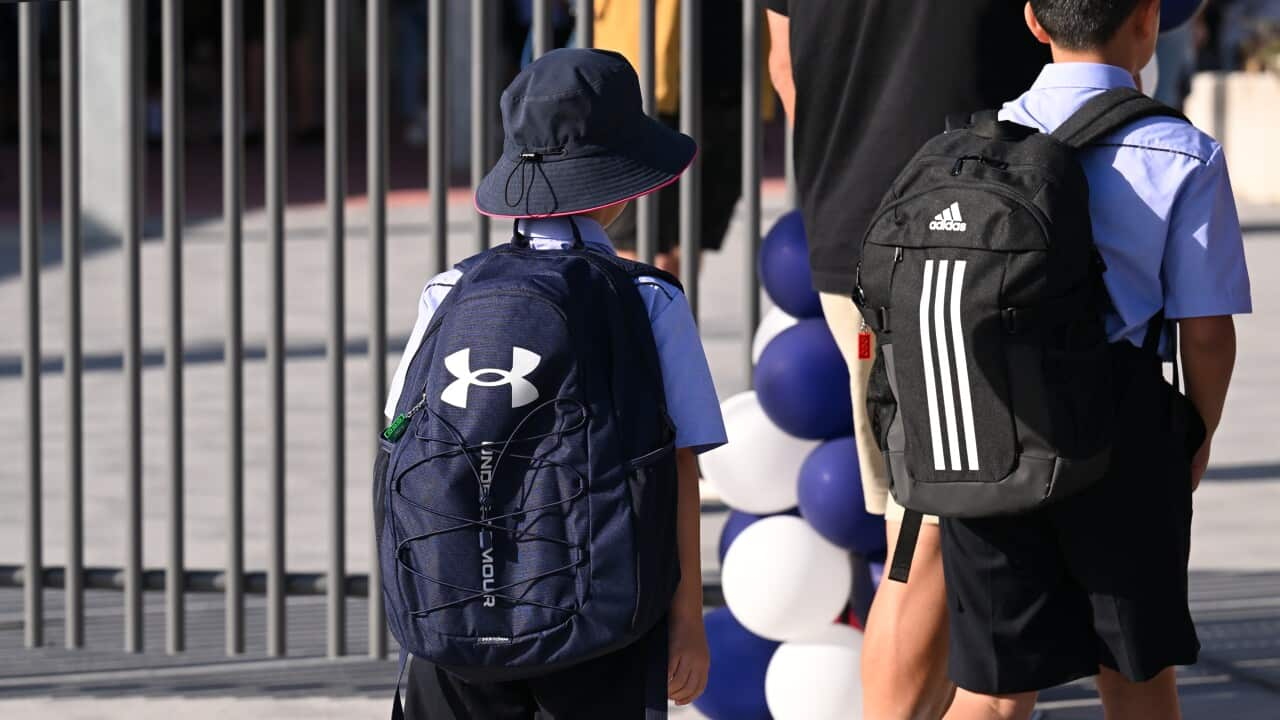KEY POINTS
- An Australian company has rolled out a childcare subsidy for its employees.
- It was sparked by the soaring cost of childcare in Australia.
- Childcare should be as accessible as the public school system, a families advocate says.
With the soaring cost of childcare, Claire Riley was almost certain she'd have to delay her return to full-time work.
But those concerns were allayed when her employer introduced a childcare subsidy — a move, while welcomed, is one that highlights why Australia's childcare system is "so broken", according to a families advocate.
Riley has worked for recruitment firm u&u for five years and, after giving birth to her son Archie — now 20 months old — returned to work part-time in May last year.
She thought she might have to stick to the reduced hours for some time, but the company's new childcare subsidy — which provides up to $10,000 per child, each year for up to four years — meant she could return to a full-time position sooner than expected.
"Due to the cost of childcare, I initially planned to delay my return to work date because it was going to be easier to stay at home," she said.
"But once I heard this initiative was coming ... it played a huge part in my return to work date."

Childcare fees in Australia increased by almost 23 per cent between 2018 to 2022, compared to an average of 6.2 per cent in other developed nations. Source: Getty / vgajic
"It'll be treated as an expense, so it doesn't impact them (parents) from a tax perspective and eligibility based on remuneration for government streams (programs and subsidies)," he told SBS News, after announcing the new policy on LinkedIn.
Sneesby said staff and candidates u&u works with were increasingly raising the struggle to afford childcare, which inspired the policy.
"They're having to weigh up whether to return to the workplace ... trying to balance the cost of childcare with their income, and ultimately looking at the gap between the two and trying to work out is it worthwhile to come back," he said.
"It led to the idea that no one is really extending their support to their family workforce beyond a strong parental leave policy.
"And so I thought we can well and truly be in a fortunate enough position to forge beyond the parental leave policy."
The state of childcare fees in Australia
A multibillion-dollar childcare investment has been one of Labor's signature policies and last year, the maximum subsidy .
The Australian Competition and Consumer Commission's final report into a year-long review of the sector found the changes did reduce costs, .
Childcare fees in Australia increased by almost 23 per cent between 2018 to 2022, compared to an average of 6.2 per cent in other developed nations.
The government, which has not ruled out "" high-fee charging childcare centres, has said the report highlighted .
A 'broken' system
Sneesby, and families advocate Georgie Dent, CEO of The Parenthood, both believe the childcare subsidy system is broken.
Dent said she welcomed u&u's new policy and said very few employers, beyond some larger ones that may have on-site daycare centres or "emergency babysitting" policies, had made moves in this space.
But she said it also raises concerns about the state of the childcare system.
"This is an incredible, stop-gap scenario that will help those employees right now in a really significant way," Dent said. "But it is not the long-term solution to Australia's early childhood education and care issues."
Dent believes childcare needs to be as accessible as the public school system, and has concerns that widespread employer-paid subsidies would see daycare centres hike fees further.
"Communities cannot function, let alone thrive when there isn't early childhood education and care," she said. "Kids miss out, parents can't go to work, workforce shortages are exacerbated, and the financial security of families is compromised."
Childcare perks: A growing workplace trend?
Workplace childcare perks are an "emerging trend", according to Lauren Anderson, a workplace expert at jobs website Indeed.
"We've seen workplaces trialling creche services if they have the space available to do so ... and the lowest hanging fruit would be adjusting shift patterns around traditional childcare drop-off and pick-up," she said.
She said businesses were in the early stages of looking at childcare-related perks, but there was "a lot of interest".
"Like where can they invest and how can they invest in childcare for their people, because traditionally it's been in the realm of government given the available subsidy, and so a lot of private enterprise hasn't necessarily considered it something they could think about."










